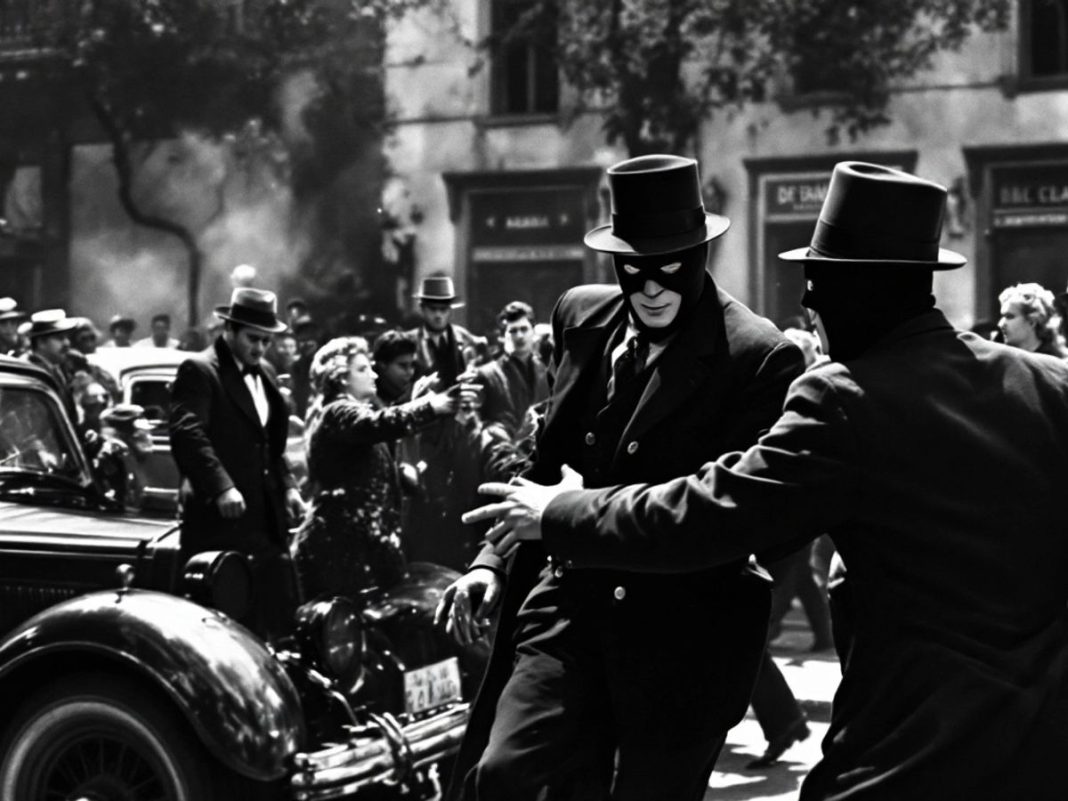On September 12, 1931, Albania was rocked by its first bank robbery, orchestrated by Dhimitër Maksakuli, a trusted employee of the National Bank in Durrës. This audacious crime not only shocked the local community but also set the stage for a dramatic police chase and a sensational trial that captivated the nation.
Key Takeaways
- Date of the Robbery: September 12, 1931
- Main Perpetrator: Dhimitër Maksakuli
- Stolen Amount: 120,000 gold francs
- Trial Date: December 1932
- Sentences: Maksakuli received 14 months; accomplices received lighter sentences.
The Heist Unfolds
On that fateful morning, Dhimitër Maksakuli, a well-respected figure in Durrës, left the National Bank with a calm demeanor. Unbeknownst to his colleagues, he had just stolen 120,000 gold francs from the bank’s cash register. With a getaway car waiting outside, he made his way to Tirana, where he spent the day seemingly unbothered.
However, his return trip to Durrës was interrupted by a police checkpoint. Authorities had been alerted to the bank’s significant cash shortage and were on high alert. Maksakuli and his companions were detained for questioning.
The Police Investigation
While Maksakuli was interrogated in Tirana, chaos ensued back in Durrës as bank officials reported the shocking theft. Investigators quickly realized they were dealing with a well-planned scheme. Under pressure, Maksakuli confessed to receiving between 50,000 and 60,000 francs, implicating several accomplices, including his cousin and friends.
The Dramatic Escape
On the way back to Durrës, Maksakuli made a daring escape attempt. While being transported in a police car, he jumped out at high speed, disappearing into the night. Despite extensive searches, he managed to evade capture temporarily, raising questions about whether his leap was a calculated escape or a desperate act.
The Trial of the Century
The trial that followed was one of the most sensational in Albanian history. In December 1932, Maksakuli and his associates faced charges of stealing 133,800 gold francs. The prosecution painted a picture of betrayal, emphasizing that trusted bank employees had committed this audacious crime.
Maksakuli was ultimately sentenced to 14 months in prison, while his accomplices received lighter sentences. The court’s decision sparked public outrage, as many felt the punishments were too lenient for such a serious crime.
Aftermath and Legacy
Even after serving his sentence, the mystery of the missing money and Maksakuli’s escape continued to haunt the public. He was arrested again in 1933 for failing to return the remaining stolen funds, further solidifying his place in Albanian criminal history.
This event marked a turning point in Albania’s approach to banking security and law enforcement, as it highlighted vulnerabilities within trusted institutions. The first bank robbery in Albania not only shocked the nation but also set a precedent for future criminal activities, leaving a lasting impact on the country’s history.

